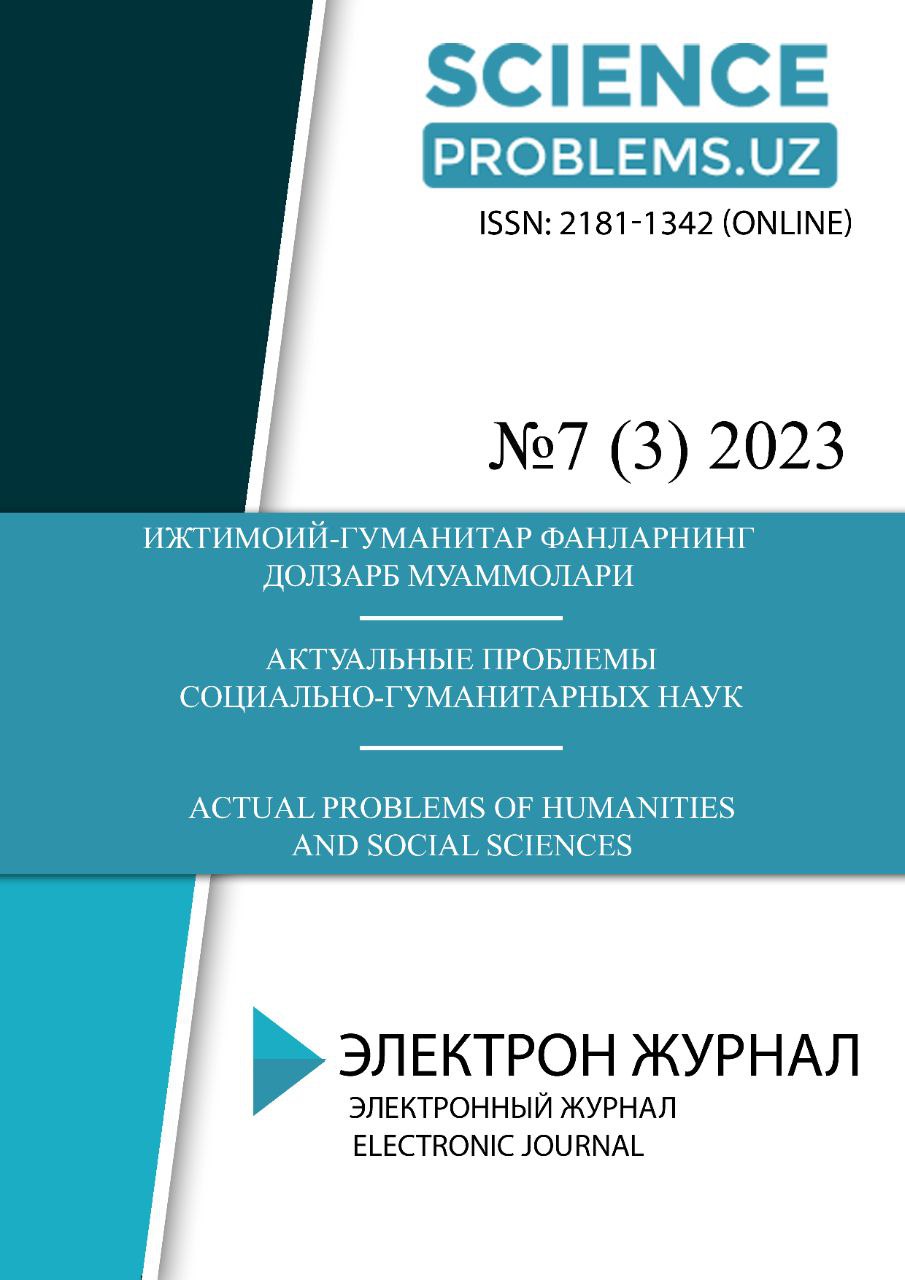АНТРОПОЦЕНТРИЧЕСКОЕ ИССЛЕДОВАНИЕ РЕЧЕВОГО ЭТИКЕТА В МЕЖКУЛЬТУРНОЙ КОММУНИКАЦИИ
DOI:
https://doi.org/10.47390/SCP1342V3I7Y2023N25Ключевые слова:
речевая этика, культура, антропоцентрическое исследование, диалог, социальное, духовное, наука, психолингвистика, слушатель.Аннотация
В данной статье подробно анализируется значение культуры в процессе общения, факторы, влияющие на формирование английской и узбекской речевой этики. Также, определяя понятия культуры, речи, этики и антропоцентрического исследования, облегчает их осмысление в тексте. Этот анализ показывает, что язык и культура являются основными факторами коммуникации. Расширение межкультурной коммуникации основано на взаимодействии представителей разных культур в развитии их речевой этики.
Библиографические ссылки
AZZI Assaad E. et KLEIN O. Psychologie sociale et relations intergroupes, Paris, Dunod. 1998.
Bach, K. and R. M. Harish. 1979. Linguistic Communication and Speech Acts, Cambridge, Mass: MIT Press.
Hall E. The Paradox of Culture // In the Name of Life. Essays in Honor of Erich Fromm. New York, 1971.
International Encyclopedia of Linguistics. - N.Y.: Oxford University Press,1992.
Kramsch. Language and Culture. 2006.- 101-b
Sardi, ”Teaching Techniques of Culture and language” -2002-23-54
Гумбольдт В. фон. Язык и философия культуры.








